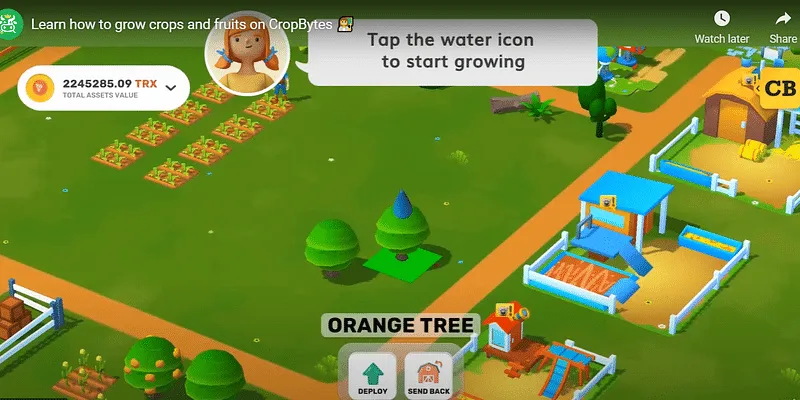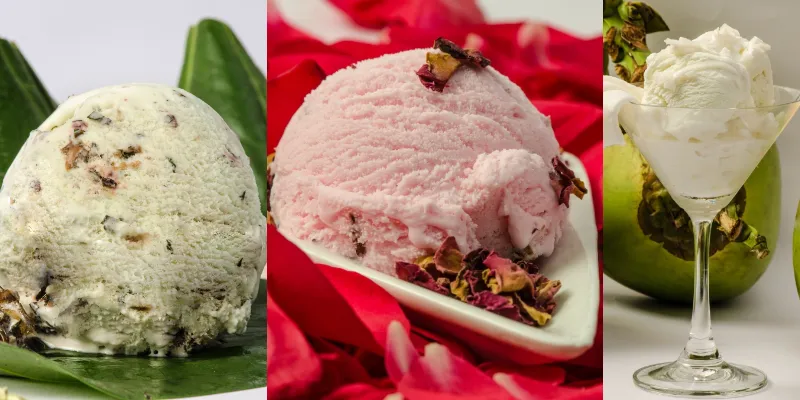Farmville but make it crypto
On CropBytes, players can own farms, fungible tokens of virtual food, farm animals, produce, etc., as well as some NFTs (Non-Fungible Tokens). Players can also participate in the in-game economy to earn tokens.
Hello Reader,
“It’s electric!”
No, this is not an ode to Metallica’s absolute banger from 1998, but more of a prediction for India’s auto sector.
As biggies like Tata and Hyundai plan the launch of their electric cars in India, Bhavish Aggarwal-led also teased its upcoming electric cars at its ‘Ola Customer Day’ event yesterday.
The company invited customers who’d bought its S1 electric scooter to visit the Ola Futurefactory in Tamil Nadu, and released a 30-second video—of not one but two upcoming electric cars.
In other news, as markets plunged to their lowest in the last two years, experts say it’s only going to get worse. Meanwhile, the crypto market continues to tumble as well.
By the way, it’s World Productivity Day today. Lucky it’s on a Monday, eh?
Happy times.
Trading virtual crops
Sandeep Kumar spent a lot of time playing Farmville, often wondering what it would be like if virtual land, farms, crops, etc., had real-world monetary values attached to them.
In 2018, Sandeep teamed up with Sheryl Varghese and launched CropBytes, an Ethereum-based farm-simulation game.
On CropBytes, players can own farms, fungible tokens of virtual food, farm animals, produce, etc., as well as some NFTs (Non-Fungible Tokens). Players can also participate in the in-game economy to earn tokens.
In November, the startup raised $2.67 million in a pre-sale seed round for its CBX token, and is also backed by several crypto industry entrepreneurs.
Into the metaverse:
- CropBytes reportedly has over half a million users and over 400,000 organic downloads across Android and iOS.
- It earns revenue by taking a one percent commission on transactions on the platform, and also from flash sales of in-game assets such as wells, lakes, land, and farm animals.
- Each asset has an intrinsic function in the overall CropBytes metaverse and serves different roles, as per the project’s whitepaper.
“CropBytes was one of the earliest games to introduce solid gameplay and fun elements in Web3 gaming, combined with the potential to earn,” said Sheryl.

A snapshot of CropBytes gameplay
Schedule a charge for your EV
India’s road to EV adoption is riddled with challenges—including a lack of fast-charging infrastructure.
BITS Pilani alumnus Arjun Singh along with IIT Delhi alumnus Saurabh Rohilla launched Hopcharge in 2019 to solve this problem by offering an on-demand EV charging service at users’ doorstep.
Its Made-in-India, rapid charging technology, according to its co-founders, minimises expensive grid upgrades, helping customers charge vehicles at their convenience.
Charge up:
- has a proprietary energy pod with a lithium ion-based energy storage and a rapid charger, which can charge EVs at the same speed as a public fast charger.
- The charging system includes connected and portable power banks with high power charging capabilities specifically designed for electric cars.
- Users need to sign up on the Hopcharge app, select the type of EV, choose their location, the battery status, as well as a time of their convenience, to schedule the charge.

Scoops of success
For almost four decades now, Anuvrat Pabrai has dedicated his life to ice cream. It all began in 1984 when Anuvrat and his wife Tulika opened an ice cream parlour on Kolkata’s Russel Street—Tulika’s Ice Cream.
Two years later, it began manufacturing its own ice creams in a small unit behind the parlour. Business was booming, so much so that the company was unable to meet customer demand despite its machines working 24x7.
But it all came crashing down as price wars and increasing competition, followed by cost-cutting that led to labour problems, forced Anuvrat to shut shop in September 2008.
Unwilling to give up, after a month, he decided to start afresh and launched Pabrai’s Naturelle and Fresh Ice Creams.
A new dawn:
- Pabrai’s Ice Creams’ USP lies in its unique flavours—Nolen Gur, Calcutta Meetha Paan, Kesar Rabri Malai, Elaichi Badam, Wasabi, and many more.
- Many of its ingredients are imported from Japan, some parts of Europe, Ghana, and more.
- Pabrai’s will focus on geographical expansion, with plans of opening five more stores across the country, targeting to have 14 more franchisee stores by the end of this financial year.

Different flavours offered by Pabrai's - Kolkata Meetha Paan, Rose Petal and Coconut Tender
Now get the Daily Capsule in your inbox. Subscribe to our newsletter today!







